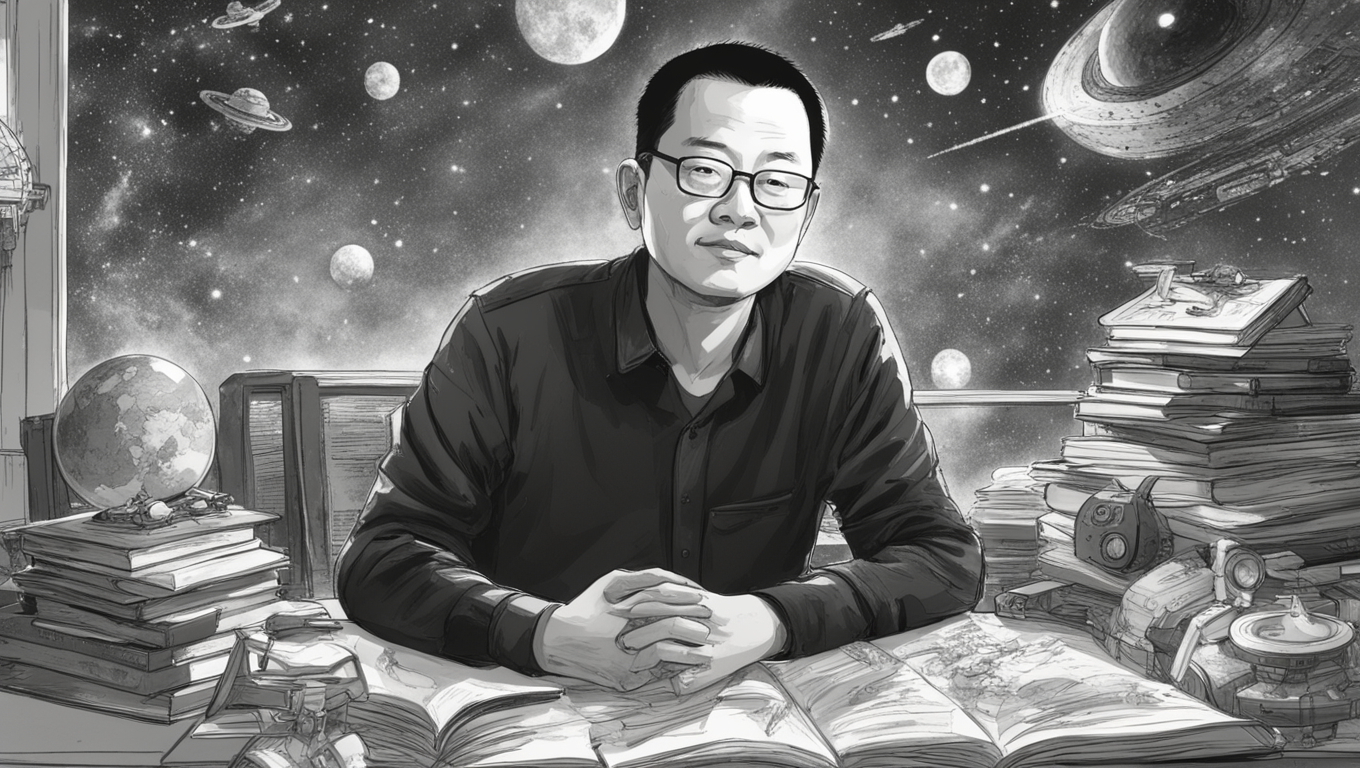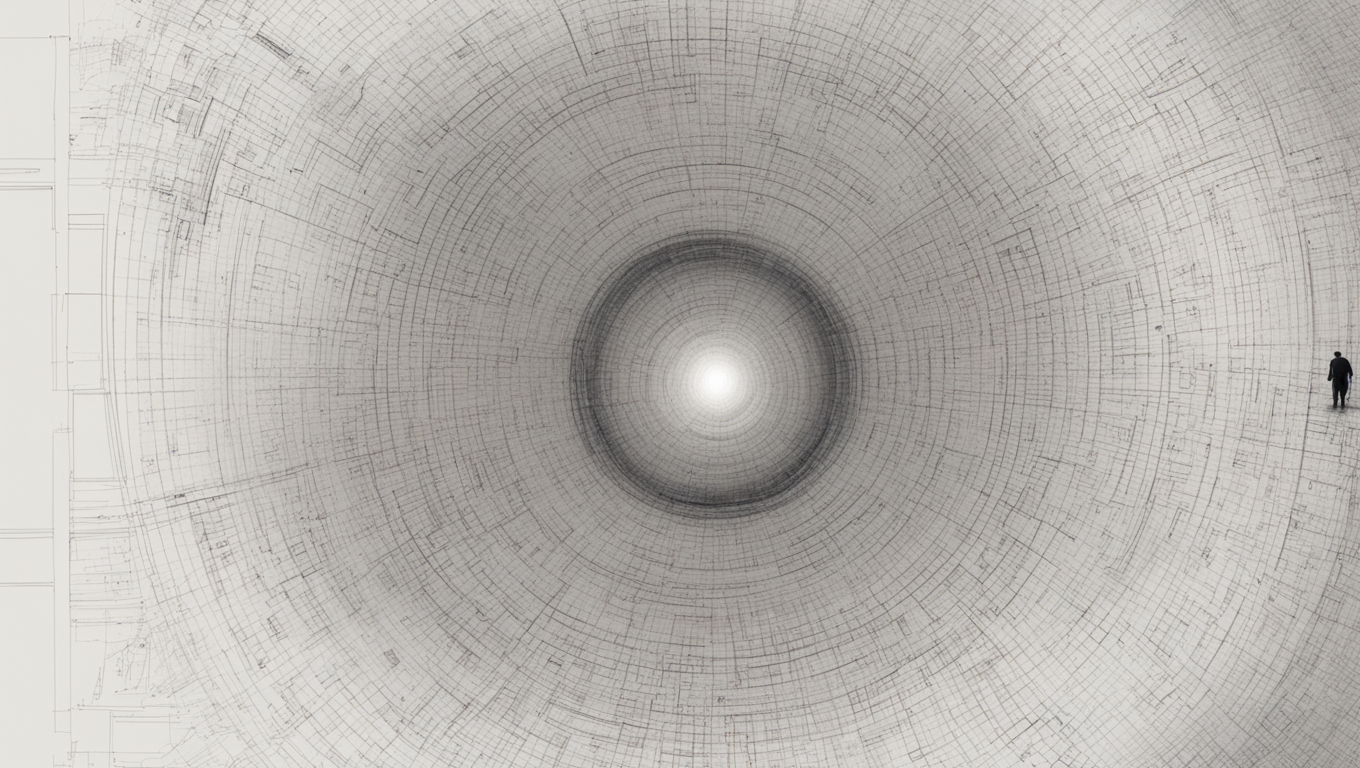Whenever Liu Cixin, author of Chinese sci-fi best sellers “The Three-Body Trilogy,” appears in public, fans besiege him. Called a man who has “single-handedly elevated Chinese science fiction to the world stage” after winning the Hugo Award for Best Novel at the 73rd World Science Fiction Convention in 2015, Liu’s popularity became an international phenomenon in the sci-fi circle.
But despite all these glories, Liu, often nicknamed “Big Liu” by sci-fi lovers for his massive contribution to Chinese science fiction, is still not used to being treated like a star. In an interview several years ago, Liu said the exercise he took regularly was the preparation he made for space travel in about 30 years. But when asked again at the ongoing 81st World Science Fiction Convention (WorldCon), he said he had temporarily given up on the ambition as “the situation has changed.”
“When I talked about my plan, I just wanted to enter space as an ordinary traveler. Now, if I do so – which I think is still possible – it would become a headline, and I personally prefer not to be at the center of attention,” said the 60-year-old. “When I’m forgotten and space travel becomes an everyday affair, I might discreetly buy a ticket to go into space without drawing much notice.”
Even so, Liu has lately been frequently pulled under the spotlight as the guest of honor of the 81st WorldCon, currently being held in Chengdu, the capital of southwest China’s Sichuan Province. It is the first time for the world’s largest and longest-running sci-fi gathering to come to China, and Liu’s attendance at multiple forums and salons provides his book fans a rare opportunity to get a closer understanding of his perspectives on sci-fi writing.
A major topic in sci-fi writing is the relationship between humans, the universe, and technology. Liu, in many of his works, has also pondered the question. Liu said sci-fi is contemporarily very much needed because this era itself is being rapidly changed by science and technology, which permeates all aspects of our lives.
“Just as a historian once said, ‘the reason humans have been able to create civilizations to this day is that we can use our imagination to create worlds that don’t exist in reality,'” the modest, sagacious sci-fi writer paused a second before continuing. “Science fiction is precisely such a literary genre, so I believe our era greatly needs science fiction.”
More importantly to him is that the concept of “human beings” in science fiction is a whole thing. “Because in science fiction, the Earth is only like dust in the universe, and we all live on the dust as a whole. Science fiction is the kind of literature that most resonates with people in different cultures and countries.”
“Science fiction depicts dreams shared by all humanity, and the nightmarish crises they portray are challenges we must face together. Hence, it truly serves as a bridge connecting diverse cultures worldwide,” said Liu.
Liu expects the Chengdu WorldCon can spark new ideas in sci-fi writing, as he admits his tight schedule makes his next work unreachable. “Since the publication of my previous work, I have been diligently writing. Every time I started out, I thought the plots were quite stunning. Yet when I was halfway through the writing, I was caught up by the rapid change of the era. I felt that such works became dull, and I had to start all over, wasting a considerable amount of time,” he said frankly.
Moreover, like a plot in a sci-fi story, AI has become Liu’s other strong rival. “There’s also a ‘force’ gradually replacing writers like us. For example, science fiction written by artificial intelligence may become increasingly better and, to be honest, I don’t know how much time AI will leave for me,” he said, exhibiting a distinct sense of anxiety.
However, Liu said as a science fiction writer, he will not “wait in place,” but actively brave the challenge. He also encourages the young generation to take the lead.
When will the “golden age” of Chinese science fiction arrive? In response, Liu said the greatest opportunity for Chinese science fiction is the country’s development. He believes as the country pushes for faster modernization, the golden age will arrive. “The most benign state of the development of Chinese science fiction should be like a hundred flowers blooming together,” he said. “And I think it is currently moving in that direction.”



Use the share button below if you liked it.